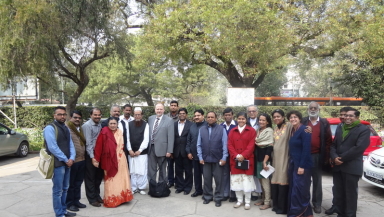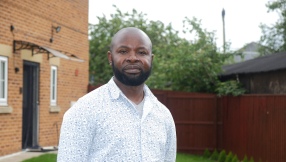
Church leaders in India have spoken out against discrimination faced by Christian and Muslim Dalit communities.
In a meeting of the National Council of Churches in India (NCCI) on 20 February, faith representatives shared their concerns with UN Special Rapporteur on Freedom of Religion or Belief Professor Dr Heiner Bielefeldt, who is currently on an official visit to the nation.
The caste system remains in place throughout much of India, although it is not written into the constitution and discrimination against those of lower castes is against the law.
Caste-related discrimination and violence are still a pressing issue, and the National Campaign for Dalit Human Rights (NCDHR) reports that 13 Dalits are murdered every week. Shockingly, it estimates that three Dalit women are raped every single day.
There is some measure of protection for members of this marginalised group - known as Untouchables - written into the Prevention of Atrocities Act. However, Dalits who choose to convert to Christianity or Islam are excluded from its safeguards.
Christian and Muslim leaders, human rights activists, lawyers and academics are therefore calling for amendments to be made to the Indian constitution that would extend rights and protection to all members of the Dalit community, which includes around 70 per cent of the country's Christians - an estimated 17 million people.
On December 11 last year, Christians and Muslims carried out a peaceful protest in the capital city of New Delhi to demand equal constitutional protections for converted Dalits. They were met with extreme violence from the police force, however, who used water cannons and canes on those marching. Around 30 people were injured and several were arrested.
Leila Passah, General Secretary of the Young Women's Christian Association (YWCA) of India spoke of the incident at the meeting on 20 February, condemning the "inhumane treatment" of the Dalit community and calling for an end to the systemic injustice.
Samuel Jayakumar, the NCCI's executive secretary for the Commission on Policy, Governance and Public Witness, labelled the situation as "religion based discrimination against Christian and Muslim Dalits in India".
"Both Dalit Christians and Dalit Muslims are not considered Dalits by our government, and hence, they are denied affirmative action programmes that empower marginalised communities," he said.
Concerns were also raised that discrimination and a systematically unjust constitution have led to hindered social and economic development throughout India.
Dr Bielefeldt agreed that action needs to be taken in order to bring about equality for all members of Indian society, and assured those present that he would raise the issue before UN human rights committees.
The UN representative's trip to India ends today.













